It should go without saying that portrayals of black characters in horror movies can stand to improve, but on the bright side, they aren’t as bad as they’ve been in the past. Compare the original King Kong to 2017’s Kong: Skull Island, for instance (acknowledging that films like these are now considered more action/adventure and less horror than they were in the 1930s, but hey, they’re still monster movies). While the latter can’t live up to the first film in terms of sheer cinematic quality and enduring impact, it does trump it in one area: a dearth of the black ooga-booga tribal stereotypes that tend to sully the first film’s legacy. (The natives in the latter are Asian and peaceful.)
In fact, it almost seems that the Kong: Skull Island filmmakers, well aware of the original movie’s racial shortcomings, aimed pointedly for roles atypical of black actors in mainstream Hollywood cinema. Corey Hawkins, for example, plays nerdy geologist Houston Brooks, who’s basically the science-y voice of reason — a role that Asian female biologist San (Tian Jing) could’ve shared if she were allowed to speak more than 10 words in the entire film.
More central is Samuel L. Jackson’s Preston Packard, a relatively rare instance of a black primary antagonist who isn’t a drug dealer or gang leader. (For Jackson, it’s also a rare case of a film in which he both uses his real hair and doesn’t utter the word “motherfucker.”) He’s a Viet Nam War-era American lieutenant colonel who’s bitter about the war’s outcome and adopts the Ahab role in his effort to take out his frustrations on Kong.
Some people might balk at the bad guy being black — and yes, it would be a problem if it became a dominant trend — but this is the kind of role that’s necessary to build out the breadth of black imagery onscreen, which in turn continues to normalize major roles for people of color. To me, the primary antagonist is certainly better than a two-bit thug or even a disposable good guy sidekick.
The thought that black roles have to be overly positive birthed the generic “authority figure” stereotype (judge, police captain, military commander, town hall worker, etc.) — i.e., Negroes who are safe, inoffensive and utterly marginalized. I’ll take a center-stage bad guy any day over that. Along with some stunning visuals and an enjoyably manic turn from John C. Reilly, Packard’s mere existence is one of the brighter spots in this movie — granted, it’s almost nullified by the writers making him yell the completely out-of-character line, “Bitch, please!” at resident white woman Mason Weaver (Brie Larson) late in the film. Really? Did someone decide to time warp into a Quentin Tarantino movie?
Anyway, the third black character is grunt Mills (Jason Mitchell, the second faux NWA member in the movie), who’s the closest to a stereotype of the bunch — comic relief, playing the straight man to his dim-witted buddy Cole (Shea Whigham) — but when it comes time for someone to give themselves up for a “heroic death” (typically, the wheelhouse for black cast members — as in 2005’s King Kong) it’s actually Cole and not Mills who does so. In fact — SPOILER ALERT — Mills manages to survive the whole way through, as does Brooks, who even plays a key role in saving the group (and Kong). END SPOILER.
As for the movie itself, it’s a pretty mess, full of clichéd, overly explanatory, blockbustery action dialogue that, within the first 10 minutes, establishes everything we’ll ever discover about these one-dimensional characters, meaning we don’t care if they live or die, because frankly, Kong has more personality and common sense — oh look, CGI!
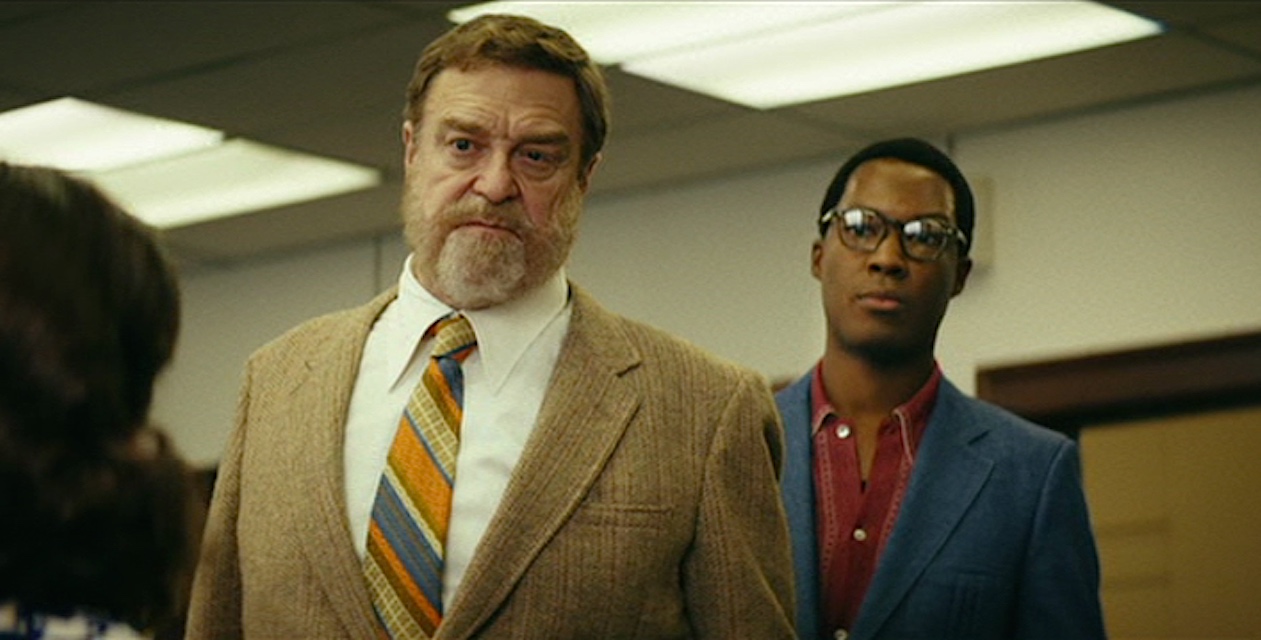
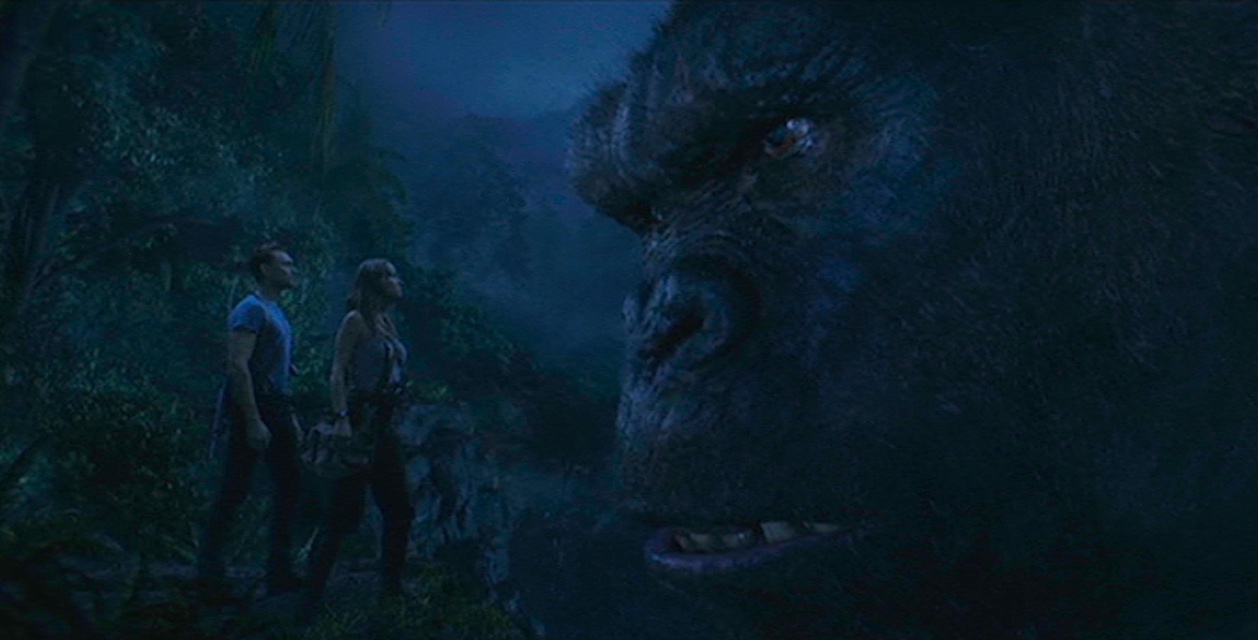
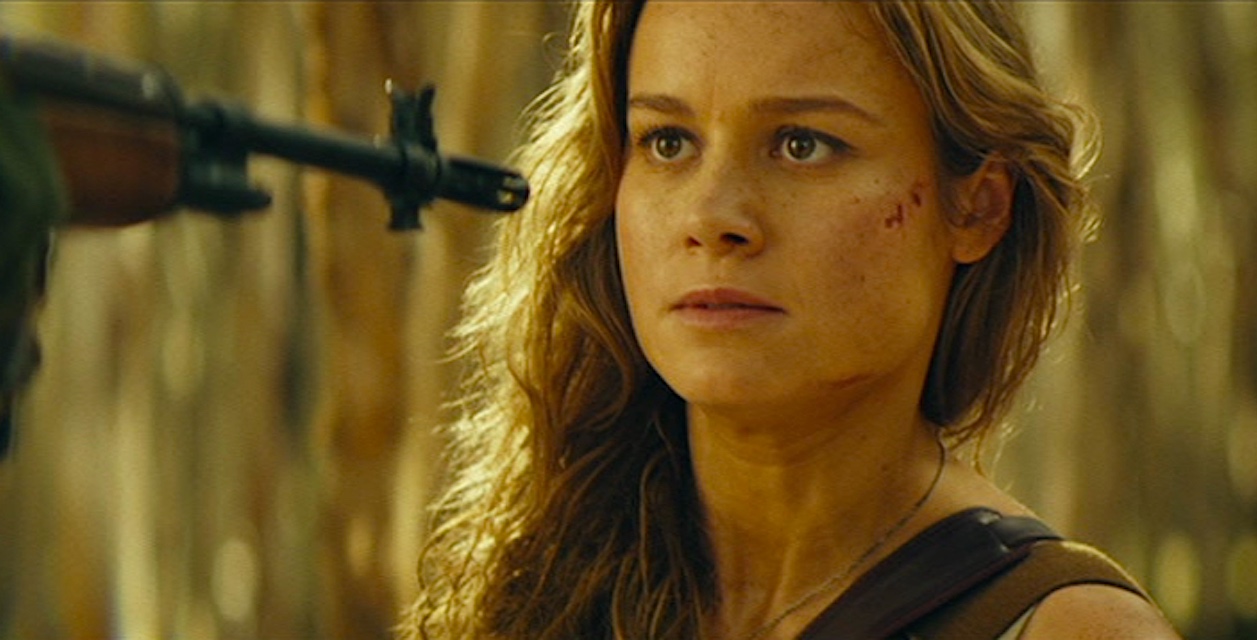
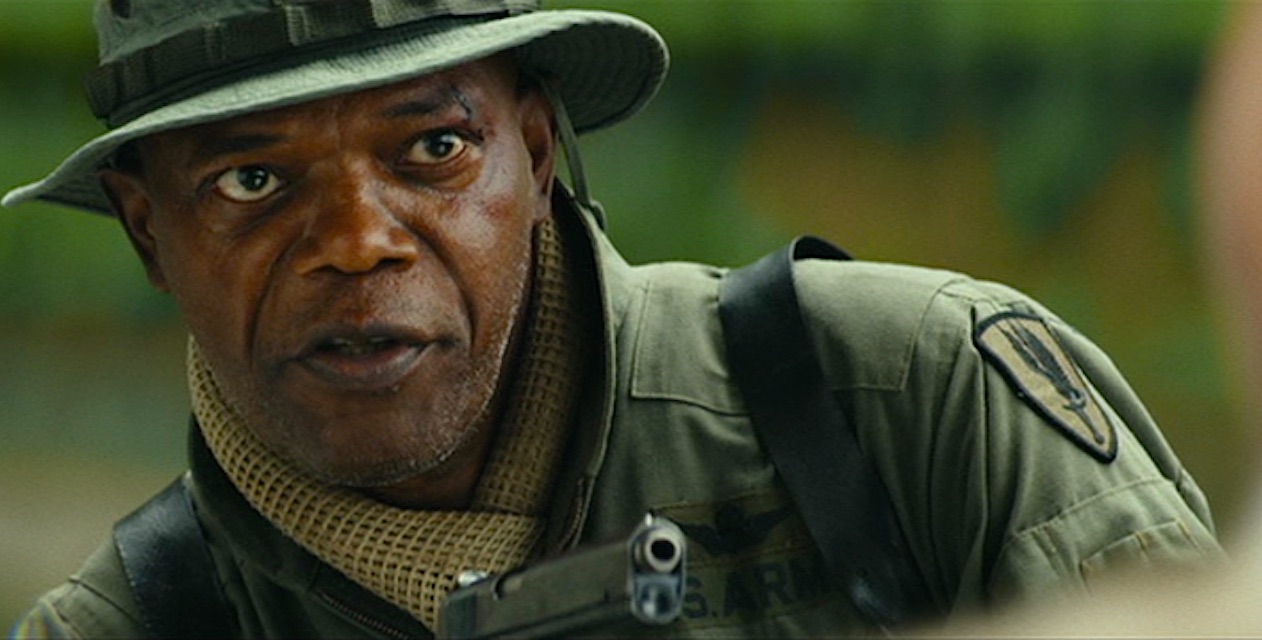
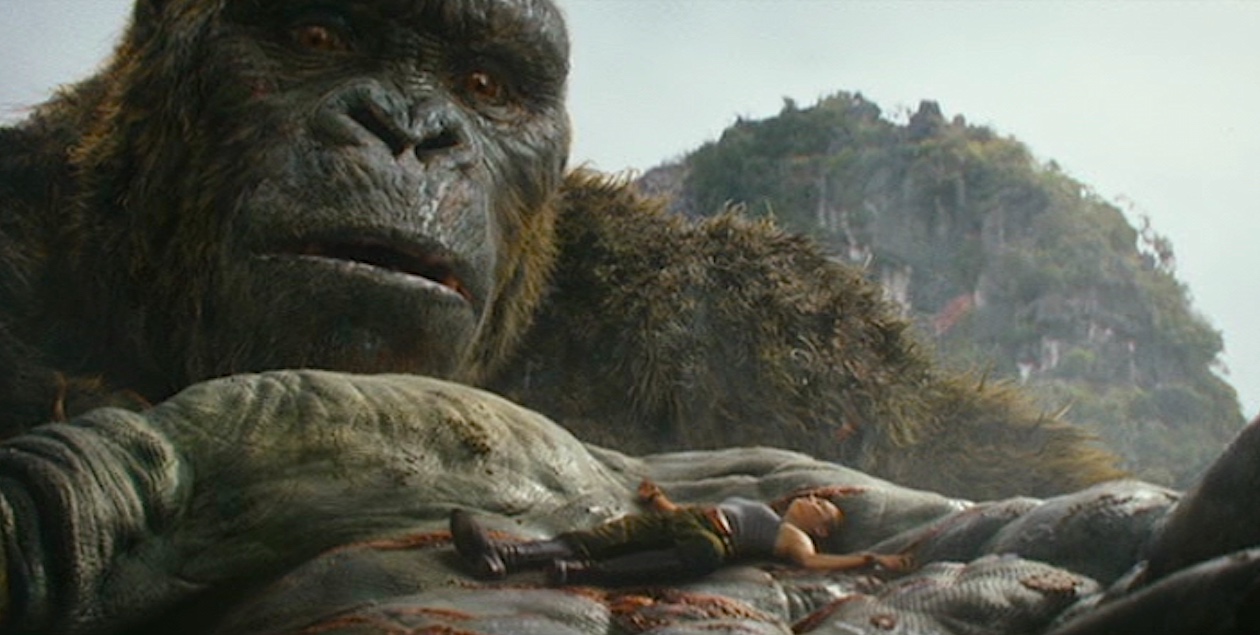
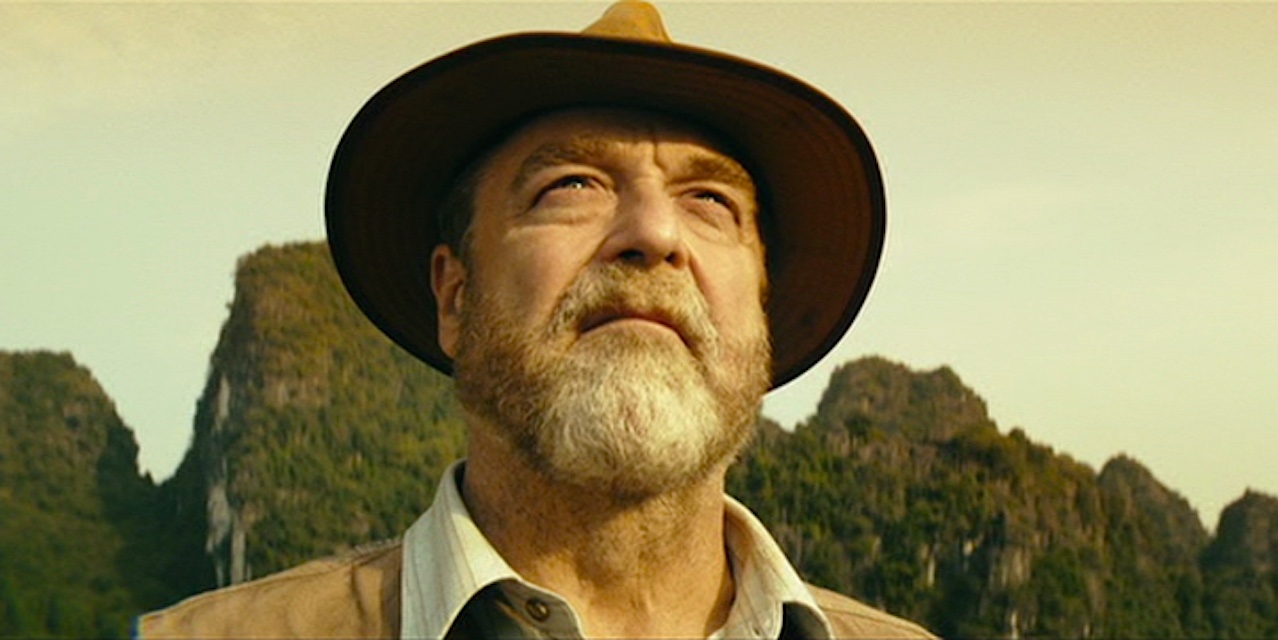

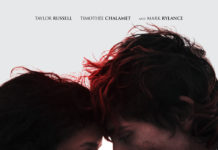


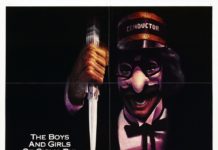

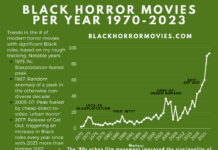
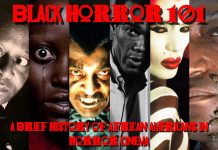
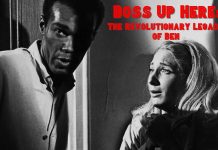
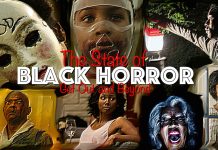
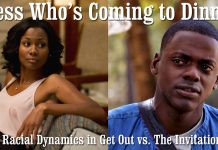
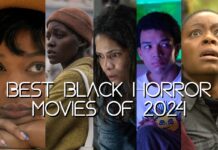
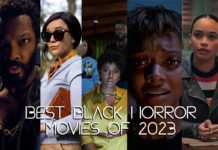
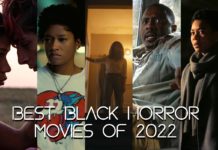


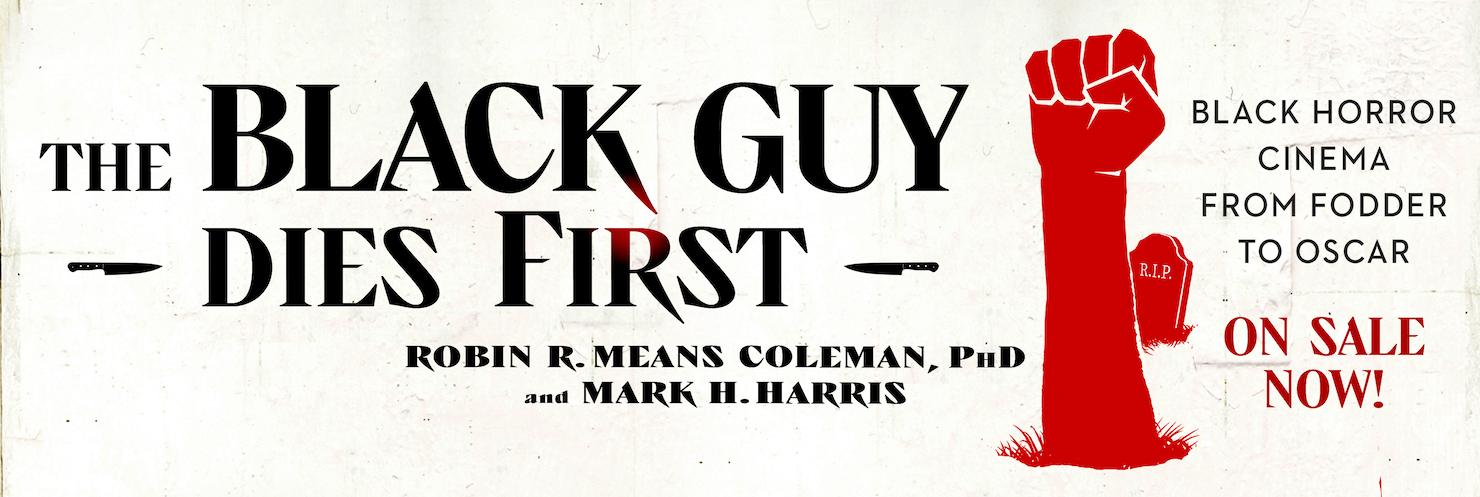
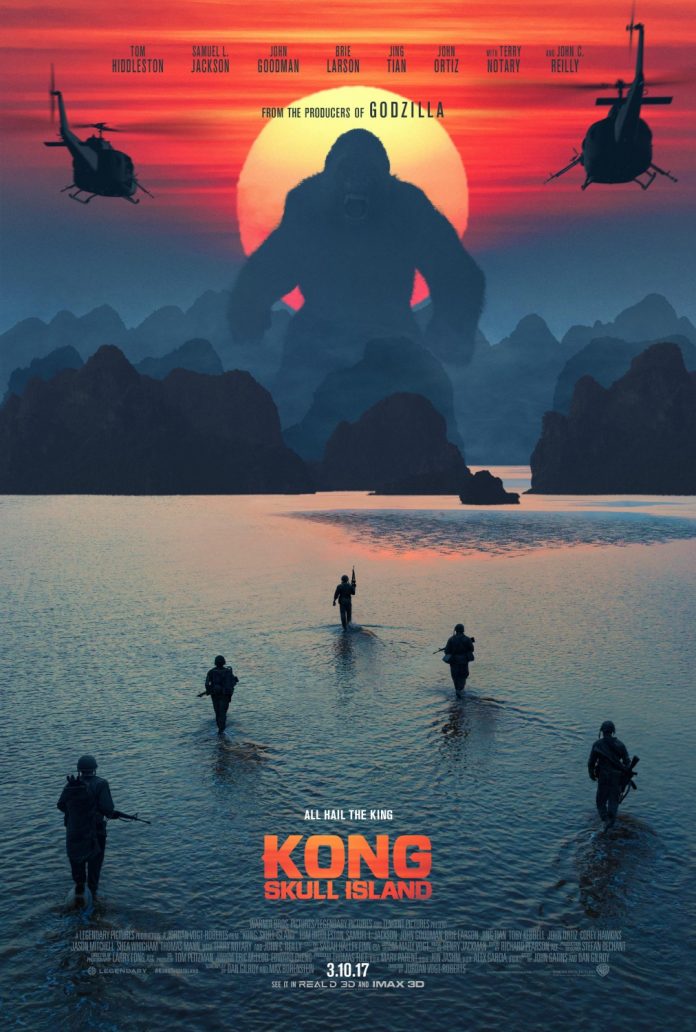

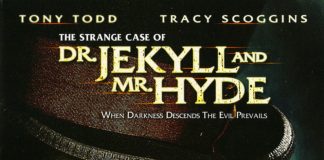
I’d class this alongside that Tarzan movie from last year with updates of world famous vintage properties that tackle the racial issues head on rather than ignoring them. A good thing, but the movies themselves are just OK otherwise.
Are you going to review Life, the ISS monster movie (not the Eddie Murphy comedy, obviously)? I’d love to read your opinion on that film’s black character, played by Ariyon Bakare (who was so great in the Jonathan Strange & Mr Norrell TV adaptation). The story sets him up as potentially responsible for the end of humanity on Planet Earth! Poor guy – Ryan Reynolds was blatantly the incompetent one, how many astronauts do you hear swearing all the time?!
You know, I saw Life, and I think I was just anticipating a case of “the black guy dies first” that I didn’t really absorb how he was basically the catalyst of all the chaos. I might need to re-watch.